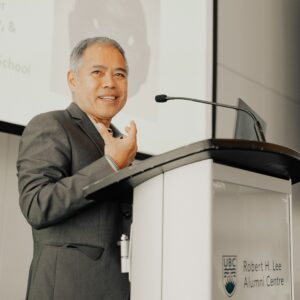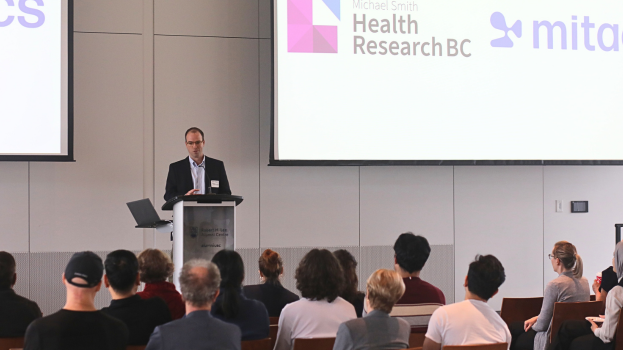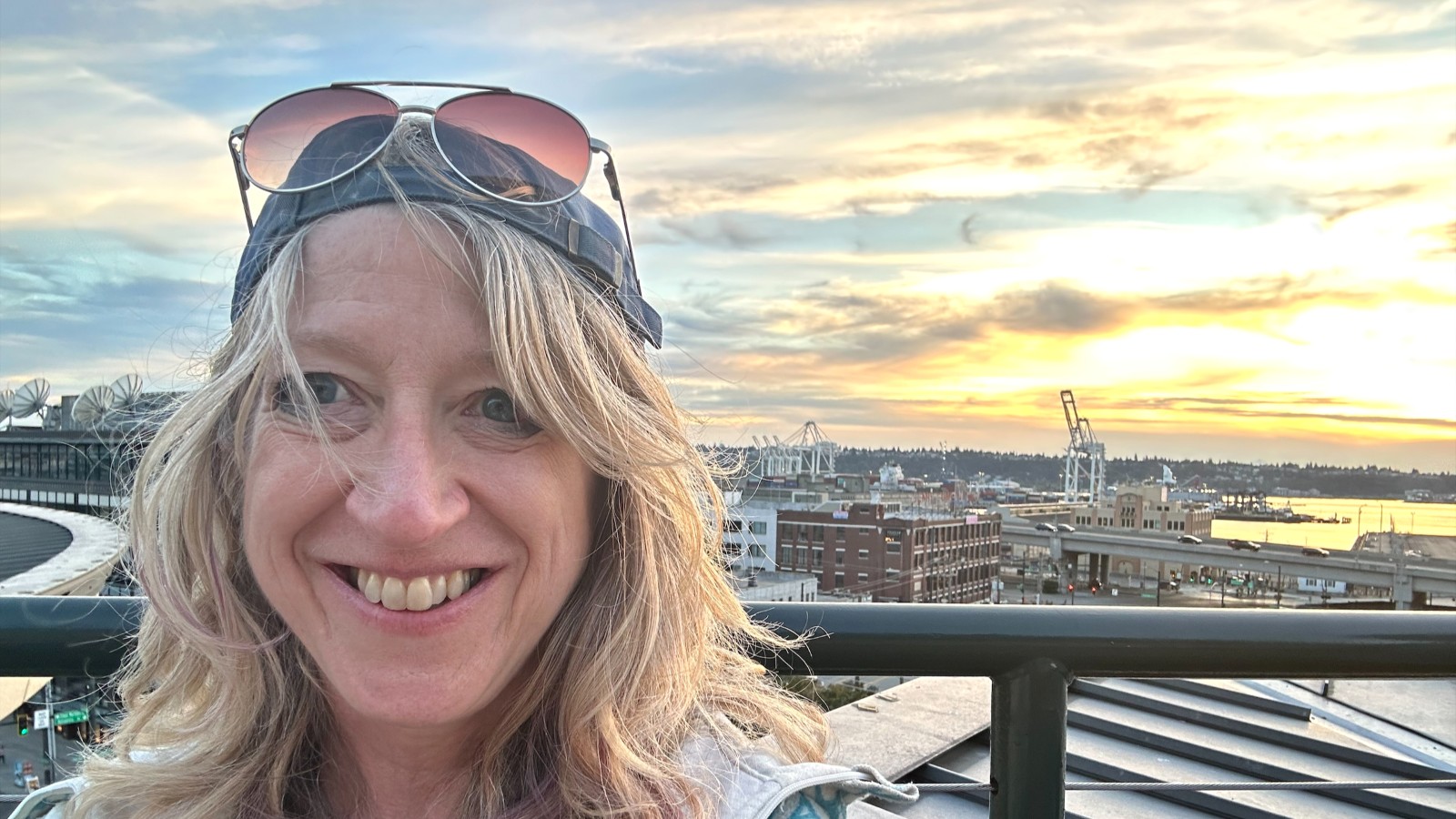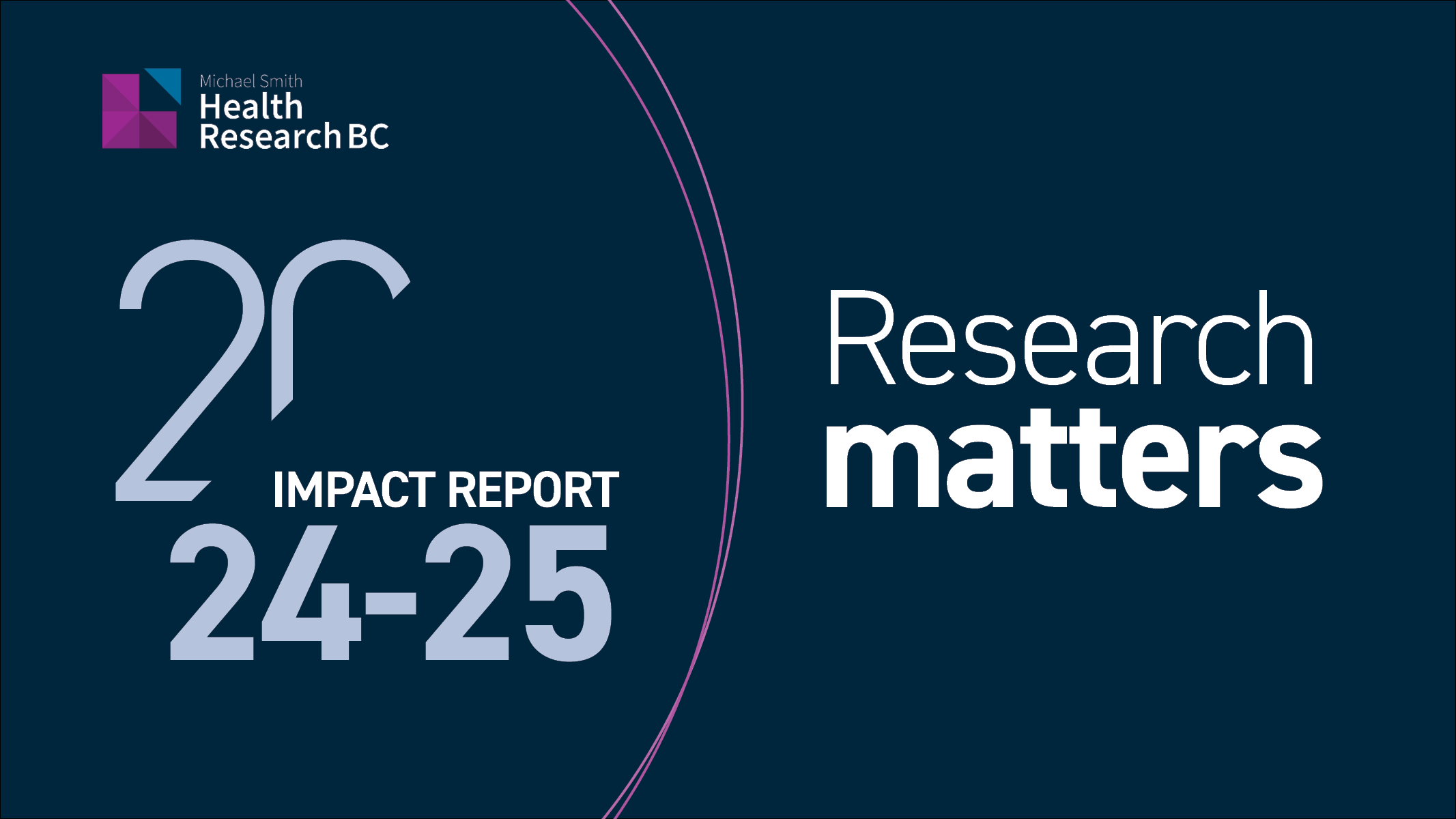Defining our own narratives: Dr. Evan Adams on supporting Indigenous research talent
23 September 2024

As Michael Smith Health Research BC looks ahead to the addition of an Indigenous scholar stream to our salary awards program, we asked Dr. Evan Adams to share his perspectives on supporting health research talent and meeting the future needs of Indigenous researchers.
Bringing Indigenous ways of knowing to health care and researchBorn of Coast Salish ancestry in Tla’amin First Nation, Dr. Evan Adams has charted a remarkable career as an actor, physician, and Indigenous public health leader. His varied roles across the health system have given him insight into the importance of supporting the growth of Indigenous researchers through mentorship and advocacy. Reflecting on his early years in medical school, Dr. Adams recalls the lack of Indigenous medical professionals who could provide guidance for him and his fellow Indigenous scholars. This experience — and seeing how Native Hawaiian physicians prepared their next generation of doctors — ignited in him the passion to mentor others on their own unique journeys, especially through more than professional guidance. “Mentorship goes beyond the usual business culture approach in Canada,” he says. “Leadership, ethics, healing — to us, these are not just workplace issues. We want to be authentic and talk about where we’re working from. Our positionality.” As a mentor to many Indigenous scholars and professionals, Dr. Adams focuses on systemic decolonization. “I want Indigenous people to decolonize their own thoughts, their work, their research, and to trust their own ways of doing things for the betterment of all of us,” he says. |
Dr. Evan Adams
|
Dr. Adams firmly believes that by integrating Indigenous ways of knowing into our health system, we can nurture a more inclusive, collaborative and supportive environment; one where knowledge keepers can guide us in creating better health outcomes.
“The world has changed, and so must the health worker,” he says. “We need lifelong learners who can walk with people on their healing journeys with honesty, respect, and true connection.”
Stealing the truth: residential school denialism
Dr. Adams has worked extensively to improve the mental health and wellbeing of Indigenous communities still affected by the intergenerational trauma of Canada’s residential school system. While the Truth and Reconciliation Commission of Canada has brought important truths to light, residential school impacts are still minimized by many.
“The stories of incarcerated, neglected and abused children need to be learned and remembered to continue on the path of reconciliation,” says Dr. Adams. He stresses the need to empower Indigenous peoples with authority over their own narratives.
This philosophy is embodied by a collaborative study called the We Walk Together project. The initiative, which published its final report in March 2024, aimed to integrate Indigenous knowledges with current healthcare practices.
Dr. Adams and his team worked to define the qualitative connection between the wellness of communities and the health of the land and water. To achieve this, the team prioritized engagement with First Nations peoples and knowledge keepers, positioning local people as experts of their own territories.
“‘Let us tell you who we are,’ they said, and that made so much sense to me,” Dr. Adams notes.
He adds that colonization continues to impact the health of Indigenous peoples. To decolonize our approaches, we must constantly challenge the way things have been done. Centering and amplifying Indigenous voices in influential circles will also ensure access to critical resources that advance self-determination.
Gaining a global perspective: The Harkness Fellowship
Dr. Adams recently began a one-year Harkness Fellowship in Hawaii. The prestigious program provides an opportunity for fellows to deepen their expertise in health policy by collaborating with experts to gain insight into different health care systems.
“I purposely want to go to a different place that I’m not Indigenous to, where I am an outsider, and where I will take a very humble position,” he says. “I think all researchers can learn from putting themselves in this position.”
Following his fellowship, Dr. Adams wants to support and amplify the voices of Indigenous health research experts. He feels it is important for Indigenous researchers to claim their own authority in exploring what is good and right for Indigenous health and wellness.
Dr. Adams notes there is some extraordinary work ongoing to centre Indigenous ways of knowing, especially in relation to the land and water, and he emphasizes the need for Indigenous peoples to trust their own thoughts and expertise.
Our commitment to Indigenous research
Health Research BC acknowledges that colonization and systemic racism have critically impacted the past and ongoing health and wellbeing of First Nations, Métis and Inuit Peoples.
We envision a health research system that values Indigenous ways of knowing, and research methods that respect Indigenous self-determination.
To that end, we have created commitments to Indigenous reconciliation to guide us in fulfilling our role and responsibilities as BC’s health research agency.
Our commitments are an active and ongoing process, like reconciliation itself. We know that progress will depend on strong relationships based upon trust and respect – and that those relationships will take time to develop. As we continue this journey, we look forward to learning, working in partnership with Indigenous peoples and organizations, and holding ourselves accountable for this work.
Learn more about our commitment to advancing Indigenous reconciliation






